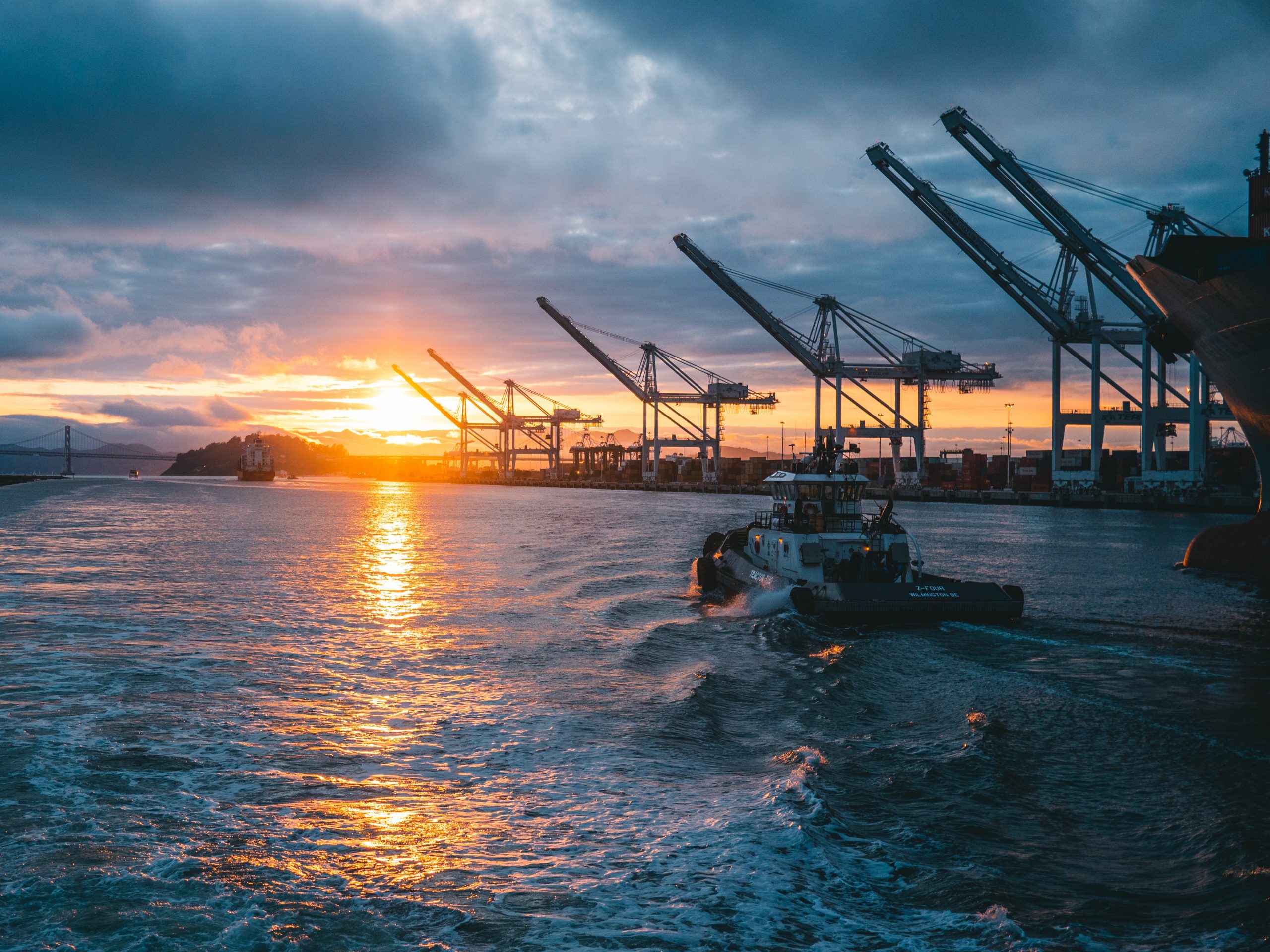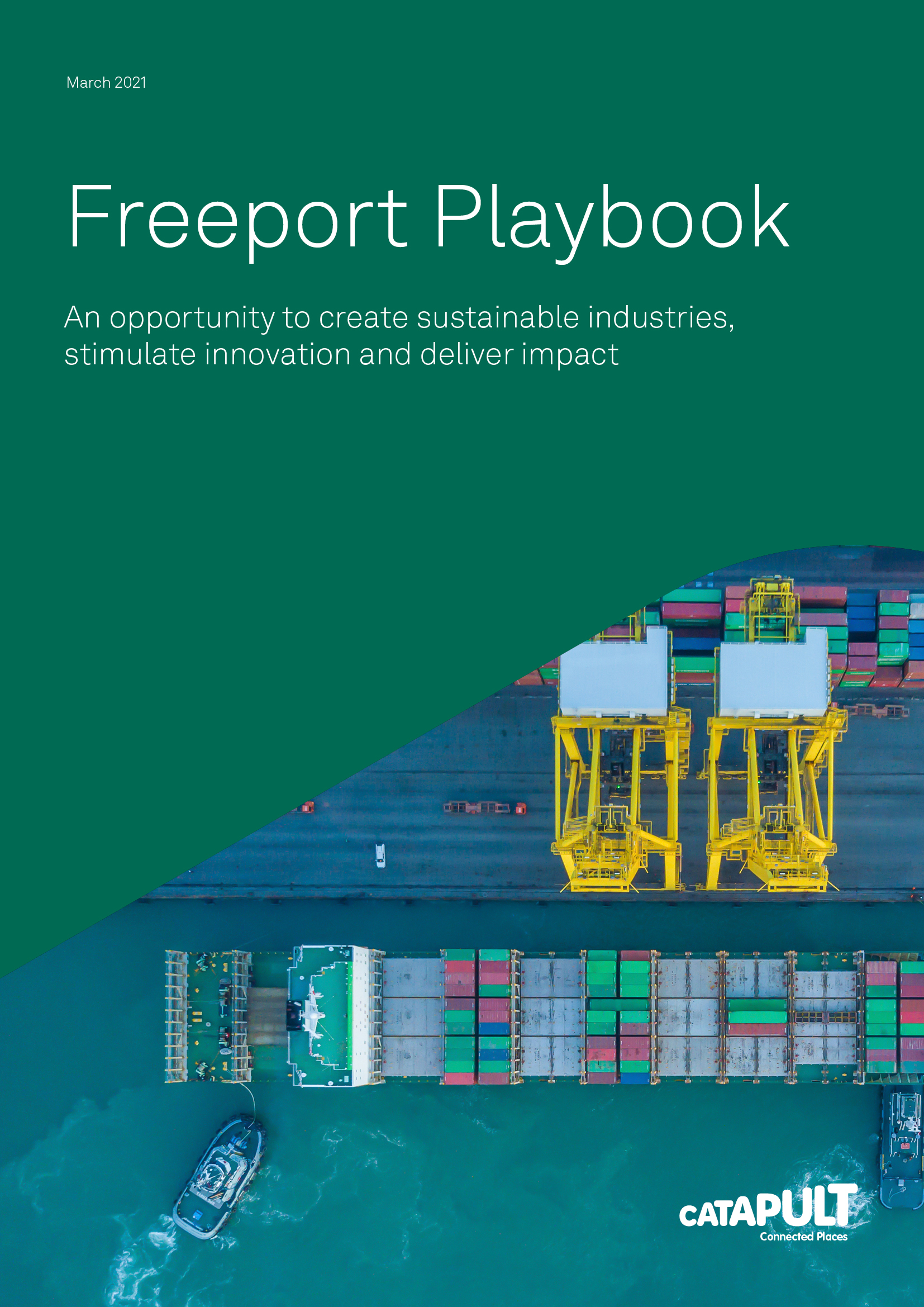The role of Freeports in driving the Maritime decarbonisation and innovation agendas

The UK Freeports initiative is a unique and exciting opportunity to stimulate regional and national economic growth and drive long-term inward investments. We strongly believe that the Freeports also have a pivotal role to play in delivering the Net Zero carbon targets and stimulating innovation in the Maritime and logistics sectors.
Guest article by Dr Khalid Nur, CEng MIET, Principal Technologist, Catapult Connected Places
As announced in the 2021 budget, the UK will now have eight new Freeports. To support this key initiative, Connected Places Catapult* has launched the Freeports Playbook, a first step in establishing the fundamentals of Freeport objectives, their global positioning, potential benefits and operational models. The Playbook outlines the initial activities that UK Freeports need to undertake to align their objectives and deliver positive economic, social and environmental impacts.
Freeports as enablers for the decarbonisation agenda
Freeports present a significant opportunity to support the UK’s net zero ambitions, bringing together a wide range of stakeholders including industry, construction, infrastructure, transport and Government to take a full supply chain, systemic approach to decarbonisation and the transition to net zero. Further presenting the potential to stimulate investment in green technologies through the Freeport zones and supporting the development, test and trials of innovative green technologies.
Freeports as catalysts for innovation
The Freeports Playbook highlights that a systems approach to innovation will be vital to the success of the Freeport Innovation Hubs, where innovation in technology and process-related solutions should be driven by genuine challenges, needs and aspirations at the local, regional and national levels. This approach will enable the translation of needs and challenges into clear, impactful requirements and provides a logical, traceable and validated mission focus. Crucially, the definition of each Freeports unique identity and vision will drive the objectives of the innovation hub (for example, Foreign Direct Investment opportunities) and needs to be built on the local strengths, needs and opportunities whilst considering broader regional and national objectives.
Freeports – what’s next?
Careful and detailed planning is required to ensure Freeports deliver on their huge potential, driving collaboration, securing leading positions in global trade and delivering long-term regional and national impact for our economy and communities. In continuing our mission with the UK’s maritime and ports sector, the Connected Places Catapult supported several of the bids as having the potential to be powerful engines of regional growth and impact, developing clusters of innovative and sustainable industries across the UK. With Innovation Hubs at the heart of freeports, this is an immense opportunity to build back better, supporting the growth of new technologies and clean, efficient and resilient supply chains.
*Connected Places Catapult is the UK’s innovation accelerator for cities, transport, and places. At Connected Places Catapult, we provide impartial ‘innovation as a service’ for mobility and built environment businesses, infrastructure providers and public institutions to catalyse step-change improvements in the way people live, work and travel. Please click here.
To download the Connected Places Catapult Freeport Playbook, please click here.

Related Content
Related Opportunities
Apply for a grant to help small and medium-sized businesses new to importing or exporting
Opens: 01/03/2021 Closes: 30/06/2021
The SME Brexit Support Fund could give you up to £2,000 to help with training or professional advice, if your business has up to 500 employees and no more than £100 million annual turnover.
More Information
Clean Maritime Demonstration Competition
Opens: 22/03/2021 Closes: 02/06/2021
UK registered organisations can apply for a share of up to £20m for innovative clean maritime and smart shipping projects. This funding is from the Department for Transport.

